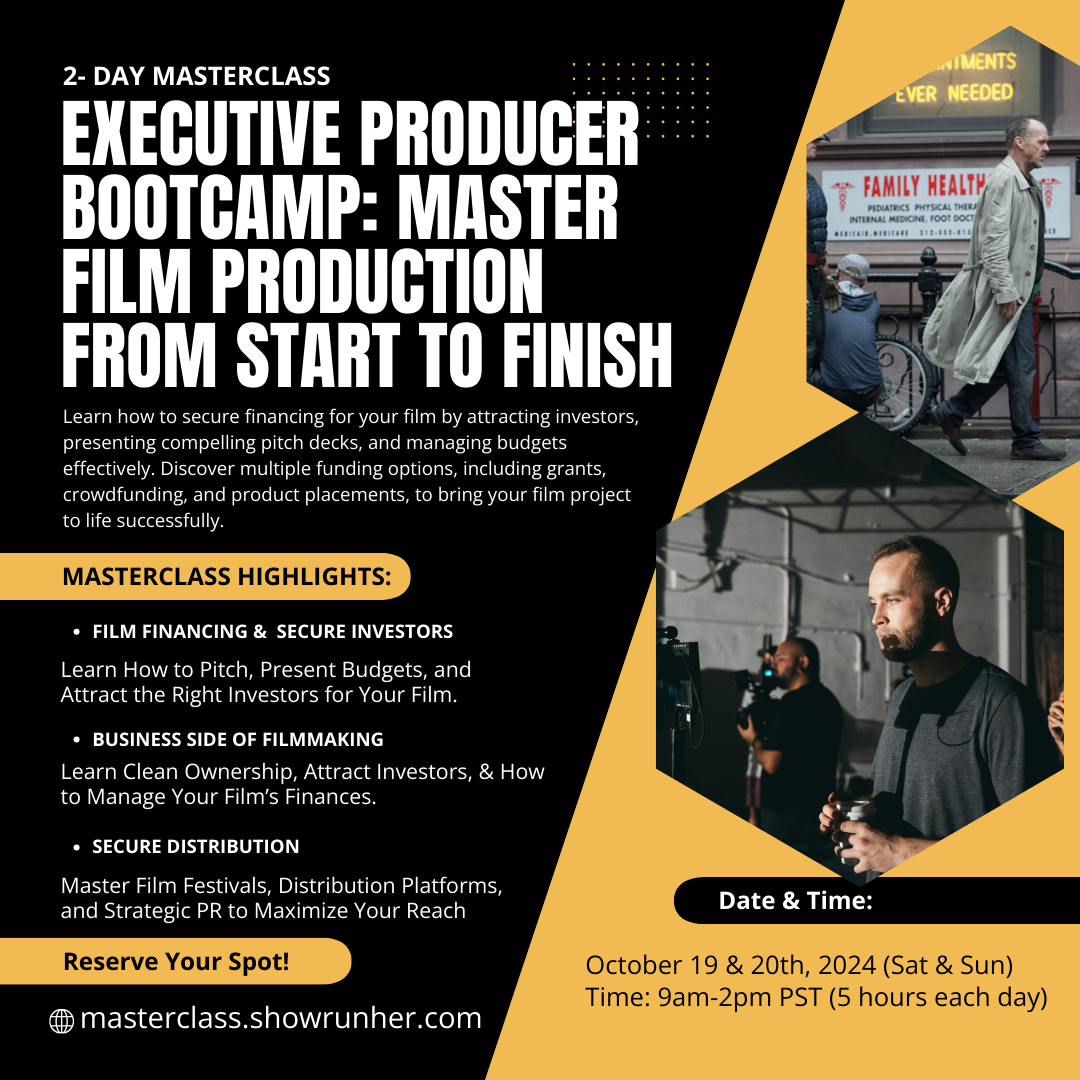Embarking on an indie filmmaking journey is both thrilling and daunting. With limited resources, a small crew, and tight budgets, indie filmmakers often face unique challenges that can lead to costly mistakes. However, with the right foresight and preparation, many of these pitfalls can be avoided. Here are ten common mistakes indie filmmakers make and how to steer clear of them.
1. Neglecting Pre-Production
The Mistake
It’s easy to get caught up in the excitement of filming right away. Many indie filmmakers rush into production without thorough planning. This leads to disorganized shooting schedules, lackluster casting choices, and budget overruns.
How to Avoid It
- Plan Thoroughly: Spend ample time in pre-production. Create a detailed shot list, storyboard complex scenes, and confirm all locations.
- Budget Properly: Break down your budget by department (camera, lighting, costumes, etc.) and track every expense.
- Secure Permissions: Ensure that you have permission for every location and that all contracts (with cast and crew) are in order before Day 1 of production.
By investing time and effort upfront, you’ll eliminate many of the last-minute surprises that derail indie projects.
2. Underestimating the Importance of Sound
The Mistake
Many first-time filmmakers pour all their attention into the camera gear and visuals but forget that bad audio can ruin an otherwise great film. Muffled dialogue, distracting background noise, or inconsistent audio levels can pull the audience out of the story.
How to Avoid It
- Allocate a Sound Budget: Ensure you have funds (even if minimal) for proper audio equipment, such as shotgun mics, lavaliers, and windshields.
- Hire a Sound Recordist: If possible, bring a dedicated sound professional on board, even if that means offering them a small stipend or a deferred payment.
- Record Quality Audio on Set: Minimize background noise, do sound checks, and capture room tone for each location to aid in post-production mixing.
High-quality sound can elevate your film significantly and is often more important than having the latest camera.
3. Not Having a Realistic Budget (and Sticking to It)
The Mistake
Indie films often operate on shoestring budgets. A major pitfall is setting an unrealistic figure and then blowing through it within days, leaving no resources for unexpected costs or post-production.
How to Avoid It
- Create a Line-Item Budget: Break down every potential expense (equipment, costumes, insurance, craft services, etc.). This helps you see where the money goes.
- Include a Contingency Fund: Reserve at least 10% of your total budget for emergencies. Indie sets are prone to unforeseen costs like damaged gear or last-minute location changes.
- Track Expenses Diligently: Use simple tools like Google Sheets or budgeting apps to monitor your spending in real time. Quick adjustments are easier when you spot issues early.
A smart budget ensures you don’t run out of funds when you need them the most, usually in post-production.
4. Overlooking Proper Scheduling
The Mistake
Without a solid shooting schedule, a lot of time can be wasted. Scenes can run overtime, crew members might not know call times, and essential set pieces or props could be missing when needed.
How to Avoid It
- Use a Production Calendar: Map out each day’s call times, scene numbers, and objectives.
- Group Similar Scenes: If you’re filming multiple scenes in the same location, try to schedule them back-to-back to reduce setup time.
- Allow Buffer Days: Build in extra days or half-days to accommodate weather issues, unexpected delays, or pick-up shots.
Good scheduling not only saves money but also keeps your cast and crew happy, both essential factors for a successful indie production.
5. Rushing Through Casting
The Mistake
It’s tempting to cast friends or whoever is available just to fill roles. However, weak performances can bring down the quality of an entire film, no matter how well it’s shot.
How to Avoid It
- Hold Auditions: Even if you have a small budget, set up a formal audition process. This could be in-person or via self-taped auditions.
- Look for Passion: Cast actors who are as excited about the project as you are. Their enthusiasm often translates into a stronger performance.
- Provide Scripts and Direction: Give potential actors enough information (character breakdown, sides) so they can show you their range during auditions.
Investing in the right cast ensures that your story is delivered with authenticity and emotional resonance.
6. Doing It All Alone
The Mistake
Indie filmmakers often wear multiple hats, director, producer, writer, editor, and it can easily become overwhelming. Spreading yourself too thin means you can’t focus on doing any one job exceptionally well.
How to Avoid It
- Delegate Tasks: Find people who can help. Offer them credits, profit-sharing, or experience. Building a small team of dedicated individuals will lighten your load.
- Prioritize Key Roles: If you can only afford a few positions, hire a skilled cinematographer or sound recordist. Focusing on the critical technical aspects can improve the film’s overall quality.
- Leverage Online Communities: Filmmaking groups on social media or platforms like Stage 32 can connect you with others eager to gain experience.
Remember, collaboration is the lifeblood of filmmaking, no one creates a movie entirely on their own.
7. Skipping Test Screenings
The Mistake
It’s easy to fall in love with your own cut and assume your film is perfect. But without outside feedback, you risk losing an audience over pacing, unclear story points, or lackluster character arcs.
How to Avoid It
- Host Small Screenings: Invite a few trusted friends or colleagues (ideally those who aren’t working on the project) to watch your rough cut.
- Ask Specific Questions: Instead of a general “What did you think?” ask about pacing, characters’ motivations, or whether any moments felt confusing or slow.
- Be Open to Criticism: If multiple people mention the same issue, it’s worth taking a closer look and possibly making changes.
Test screenings help you fine-tune your film before investing in final edits, sound design, or color grading.
8. Neglecting Post-Production Needs
The Mistake
Some indie filmmakers treat post-production as an afterthought. But editing, color grading, sound mixing, and visual effects can make or break a film’s final quality.
How to Avoid It
- Budget for Post-Production: Allocate enough funds to hire a competent editor, colorist, or sound designer, or invest in decent editing software if you’ll do it yourself.
- Plan Your Workflow: Store and label your footage properly. Keep backups in at least two separate locations or hard drives.
- Allow Adequate Time: Post-production can take weeks or months. Rushing this stage often leads to technical glitches and sloppy edits.
A well-executed post-production process can add polish to your film and elevate it beyond the typical indie fare.
9. Ignoring Marketing and Distribution
The Mistake
Many filmmakers focus solely on creating the film and forget about what happens afterward. Without a plan to get your film seen, all your hard work may never reach its intended audience.
How to Avoid It
- Start Early: Begin marketing during production. Use social media to engage potential fans and share behind-the-scenes content.
- Research Distribution Options: Explore film festivals, streaming platforms (Amazon Prime, Vimeo On Demand, FilmHub), or self-distribution avenues.
- Create a Press Kit: Include production stills, a synopsis, cast/crew bios, and contact information. Make it easy for journalists or bloggers to cover your film.
Marketing doesn’t have to be expensive; consistent online engagement and targeted outreach can go a long way in building an audience.
10. Failing to Build a Network
The Mistake
Filmmaking is a collaborative art, yet some indie filmmakers isolate themselves, hoping to do it all on their own. A lack of industry connections can limit opportunities for funding, distribution, and future projects.
How to Avoid It
- Attend Industry Events: Film festivals, workshops, and local filmmaker meetups are great places to meet fellow creatives.
- Join Online Communities: Participate in forums like Reddit’s r/Filmmakers or Facebook groups dedicated to indie film. Share your experiences and learn from others.
- Offer Value: Whenever possible, help others on their projects, Fbe it with script notes or offering yourself as a production assistant. Building goodwill often pays off later.
A strong network can introduce you to potential investors, collaborators, and mentors who can help you level up your filmmaking career.
Final Thoughts
Indie filmmaking is a labor of love. With limited resources, every decision carries extra weight, and mistakes can set you back significantly. By investing in thorough pre-production, prioritizing sound and casting, and planning for both post-production and distribution, you’ll position your film for success. Also, remember the power of community; you can achieve far more when you share knowledge, collaborate, and lean on fellow creatives.
Keep these pitfalls in mind as you embark on your next indie film adventure. With each new project, you’ll become more adept at avoiding costly mistakes, bringing you closer to realizing your vision on screen.









